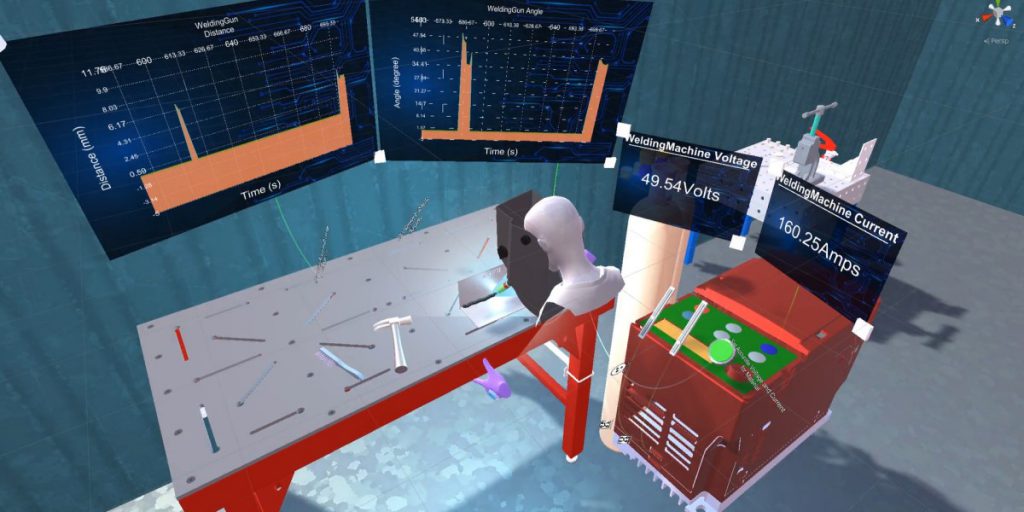Dr. Niklas Elmqvist & Purdue to Develop Virtual Reality Workforce Training Tech
Funded by a $5M NSF Grant to develop more effective workforce training methods using augmented, virtual, and extended realities.

Dr. Niklas Elmqvist, professor at the University of Maryland College of Information Studies (UMD iSchool) and director of the world-famous UMD Human-Computer Interaction Lab, is co-PI on a $5M NSF Convergence Accelerator grant led by Dr. Karthik Ramani, the Donald W. Feddersen Distinguished Professor in Mechanical Engineering at Purdue University. This project aims to develop new workforce training using augmented and virtual reality.
The project, Skill-XR, will focus on the manufacturing industry, which traditionally has had low-tech employee training methods (in-person teaching sessions, manuals, videos), and has been faced with an increasing skills gap.
“In this generation, YouTube videos have become stand-in educators,” said Dr. Ramani. “People turn to YouTube to figure out how to tie a tie, change a tire, or cook a meal. We want to push that concept into the next dimension, so that it’s no longer just a 2D video on a screen, but it’s an augmented reality experience, that actually responds to you and gives you feedback.”
The Skill-XR project will create a prototype AR/VR/XR training experience. The “X” in “Skill-XR” stands for a range of technologies that includes augmented reality (AR), virtual reality (VR), and extended reality (XR). For example, a newly-hired factory worker may wear augmented reality glasses while being trained on a piece of equipment, and see graphics overlaid on the machine about how to operate the controls. The instant feedback upon performing the task correctly ensures that workers are trained quickly, effectively, and safely.
The team sees future applications of Skill-XR beyond workforce training, such as youth education, immersive college learning experiences, and medical professionals practicing surgical techniques.